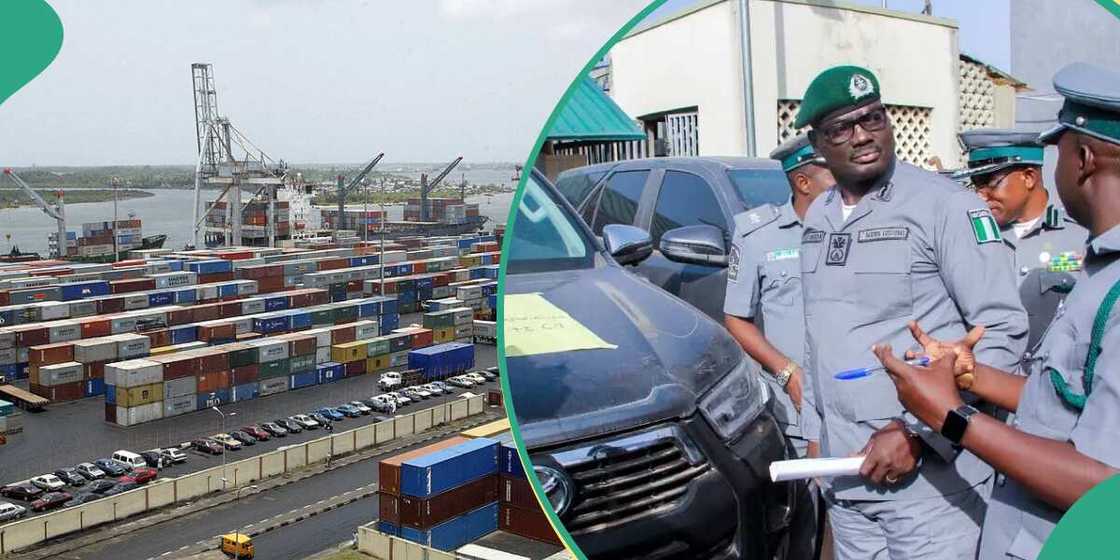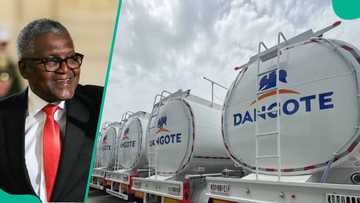Nigerians Face Higher Prices as Customs Revives 4% FOB Charge, Hikes Licence Fees by 1,500 Per cent
- Nigerians will soon face the heat over new charges introduced by the Nigeria Customs Service
- These controversial charges have been flagged by industry stakeholders, who say they will stoke more inflation in the country
- With the introduction of these charges, importers will hike clearing costs, which will impact Nigerian consumers
Legit.ng’s Pascal Oparada has reported on tech, energy, stocks, investment and the economy for over a decade.
The Nigeria Customs Service (NCS) has reintroduced a four per cent Free on Board (FOB) charge on imports, replacing the previous one per cent Comprehensive Import Supervision Scheme (CISS) and a seven per cent duty surcharge.
The charge, calculated on the value of goods including transportation to the port of loading, is already sparking concerns about higher costs for consumers.

Source: Getty Images
How the new FOB charge works
According to Comptroller-General Bashir Adeniyi, the surcharge will fund investments in modern customs technology.
“Technology is not cheap… If you want to eat and lick better soup, we must be ready to fund it,” he told stakeholders.
However, clearing agents warn the real burden will be borne by Nigerians. “Whatever they were paying before, there is now a four per cent addition on it,” said Sulaiman Ayokunle, Senior Special Adviser on Media to the ANLCA president.
Documents seen by BusinessDay show how the four per cent Foreign Common Surcharge (FCS) inflates total import costs.
According to a report by BusinessDay, for a vehicle with an FOB value of ₦4 million, total taxes now exceed ₦2.1 million after factoring in customs duty, automotive levies, port surcharges, VAT, and the FCS.
For used vehicles, the total payable duty is multiplied by 2.573 — a formula that also applies to trucks, spare parts, and household items.
This means virtually every type of imported product will see cost increases.
Massive licence fee hike for clearing agents
In a move set to further raise costs, NCS plans to hike annual licence renewal fees for clearing agents by as much as 1,500% starting January 2026.
The renewal fee will jump from ₦215,000 (plus ₦15,000 per command) to ₦4 million, while new licences will rise from ₦600,000 to ₦10 million.
Customs says the increase is necessary to reflect “prevailing economic realities” and comply with the Nigerian Customs Service Act 2023.
The agency also promises perks for compliant agents, including priority processing and enhanced digital platform integration.
What this means for Nigerians
Industry experts say both the FOB charge and licence fee hike will cascade through the supply chain.
Higher operating costs for agents and importers will ultimately translate into steeper retail prices, hitting consumers already struggling with inflation and weak purchasing power.
As Nigeria takes the chairmanship of the World Customs Organisation Council, Adeniyi insists the reforms will modernise trade facilitation and boost revenue.

Read also
Soaring prices push Nigerians to ditch 'Tokunbo' cars for local alternatives, new rates emerge

Source: Getty Images
But for millions of Nigerians, the immediate concern is whether they can still afford the goods they rely on.
CBN adjusts exchange rate to clear goods
Legit.ng previously reported that the Central Bank of Nigeria (CBN) has fixed the Customs exchange rate for import duty at ₦1,532.682 per dollar, slightly lower than the official exchange rate of ₦1,534.90 recorded on Friday, August 8, 2025.
The new rate, posted on the federal government’s trade portal, determines how much importers pay to clear goods at Nigerian seaports and airports.
It means importers opening Form M will pay marginally less than the official forex rate for duty calculations.
Proofreading by Kola Muhammed, copy editor at Legit.ng.
Source: Legit.ng



